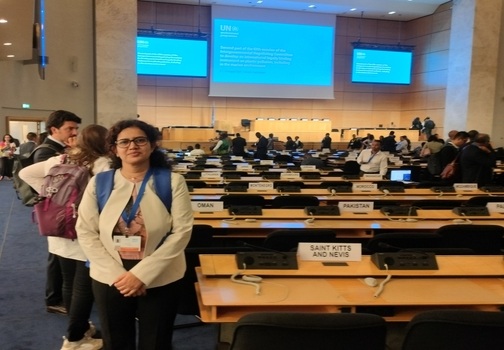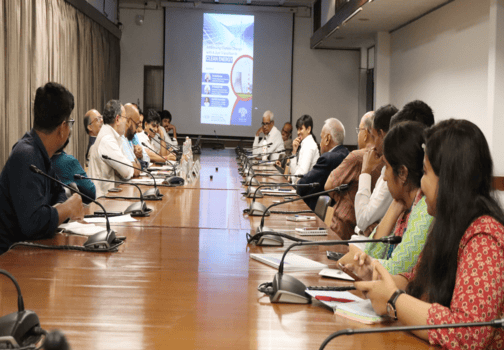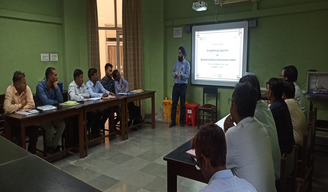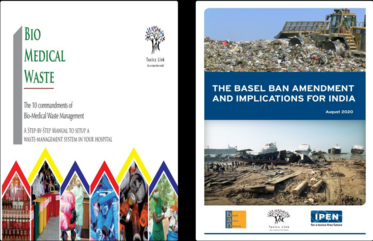HEALTH RISKS ASSOCIATED WITH DRONE DUMPING GROUND
GOVERNMENT OF INDIA
MINISTRY OF HEALTH AND FAMILY WELFARE
DEPARTMENT OF HEALTH AND FAMILY WELFARE
LOK SABHA
UNSTARRED QUESTION NO. 4801
TO BE ANSWERED ON 28TH MARCH 2025
HEALTH RISKS ASSOCIATED WITH DRONE DUMPING GROUND
4801. SHRI SANJAY DINA PATIL:
Will the Minister of HEALTH AND FAMILY WELFARE be pleased to state:
(a) whether the Government proposes to mitigate health risks such as respiratory illnesses, vector-borne diseases and air pollution associated with the Deonar dumping ground for residents of Shivaji Nagar, Baiganwadi and nearby areas in the State of Maharashtra and if so, the details thereof along with the steps taken/proposed to be taken by the Government thereto;
(b) the measures being implemented to control fires, toxic emissions and groundwater contamination in the State of Maharashtra;
(c) the manner in which the Government address the disposal of 100 years of accumulated waste along with the progress of the Waste-to-Energy plant in resolving Mumbai’s waste crisis in light of the court-appointed committee recommending the scientific closure of 124 acres of the Deonar landfill;
(d) the details of timeline fixed and strategy for the said process;
(e) whether the Government has conducted an environmental impact assessment regarding the relocation of Dharavi residents to Deonar and if so, the details thereof; and
(f) the details of the plan align with the BMC’s 2034 Development Plan along with other alternative solutions which are being explored to ensure that the redevelopment does not compromise public health and environmental safety?
ANSWER
THE MINISTER OF STATE IN THE MINISTRY OF HEALTH AND FAMILY WELFARE
(SHRI PRATAPRAO JADHAV)
(a): Ministry of Health and Family Welfare provides technical and financial support to the States/UTs to strengthen the public healthcare system, based on the proposals received in the form of Programme Implementation Plans (PIPs) under National Health Mission. “Public Health and Hospitals” being a State subject, the primary responsibility of strengthening public healthcare system including mitigating health risks lies with the respective State Governments including Maharashtra. The Brihanmumbai Municipal Corporation (BMC) has implemented measures to mitigate health risks. This includes the use of eco-friendly herbal solutions to reduce foul odors, repel insects, and regular water spraying to control dust and air pollution. No significant increase reported in the number of patients with respiratory disorders registered in dispensaries of these areas.
(B): The daily municipal solid waste at Deonar Dumping Ground is being levelled and covered with debris/soil in order to reduce odors and fire risks. Air quality monitoring systems are installed in nearby areas like Shivaji Nagar for measuring air quality. Water management, including groundwater quality, is primarily the responsibility of the States, but the Central Ground Water Board (CGWB) monitors groundwater quality across the country, including Maharashtra. To improve monitoring, a new Standard Operating Procedure (SoP) has been introduced, and under the National Aquifer Mapping Programme (NAQUIM), special attention is given to contamination by toxic substances, with technical assistance provided to States for constructing fluoride-safe wells and conducting awareness programs.
(c) to (f) : Work of Waste to Energy Project has been awarded with processing capacity of about 600 Tons Per Day (TPD) of Municipal Solid Waste. Consent to Establish (CTE) has been received for the project on 04.06.2022 from Maharashtra Pollution Control Board (MPCB). The State Environment Impact Assessment Authority under the Ministry of Environment, Forest and Climate Change have issued an Environment Clearance for development of Waste to Energy Project. As per the Development Plan (DP) 2034, the plot in question is located in CTS No. 1 of Deonar Village, Mumbai East Ward. It is part of a larger amenity area that includes Environmental Management System (EMS 3.2) (landfilled sites) and a Reservation for Open Spaces (ROS 1.5) (Garden/Park), with a total area of approximately 595,986 sq.m






